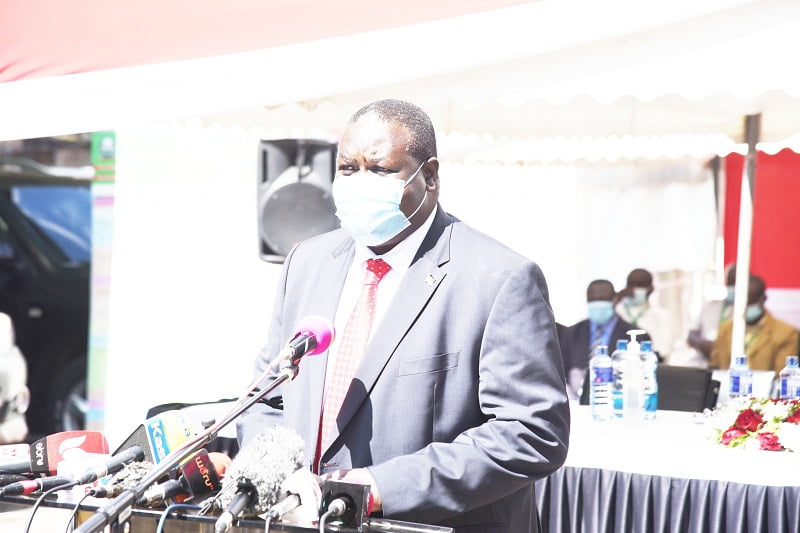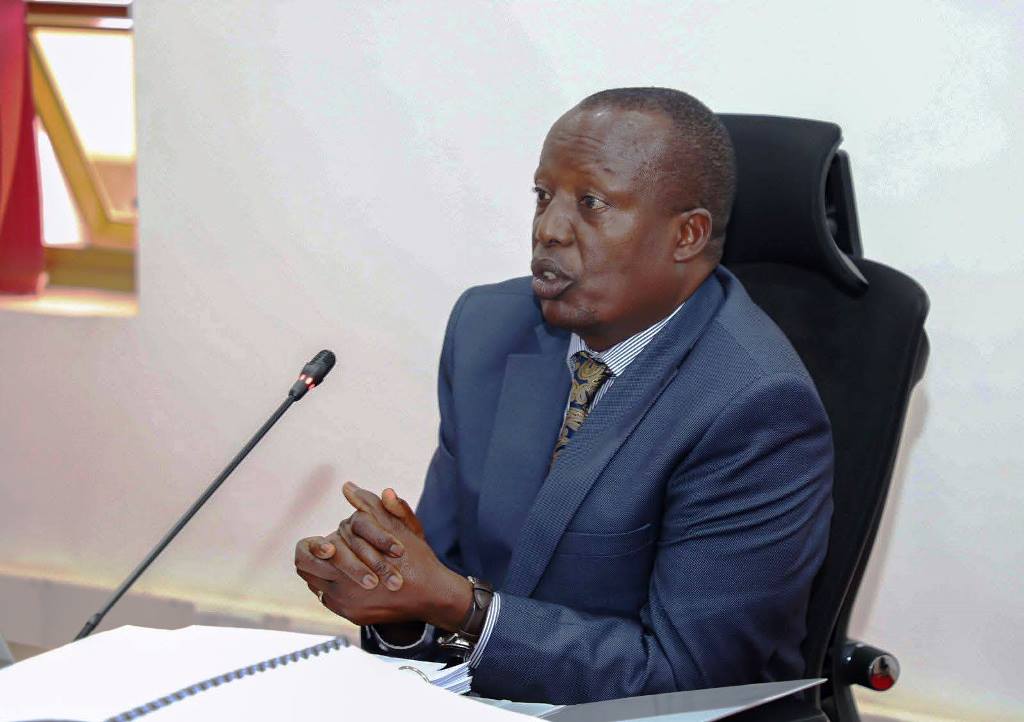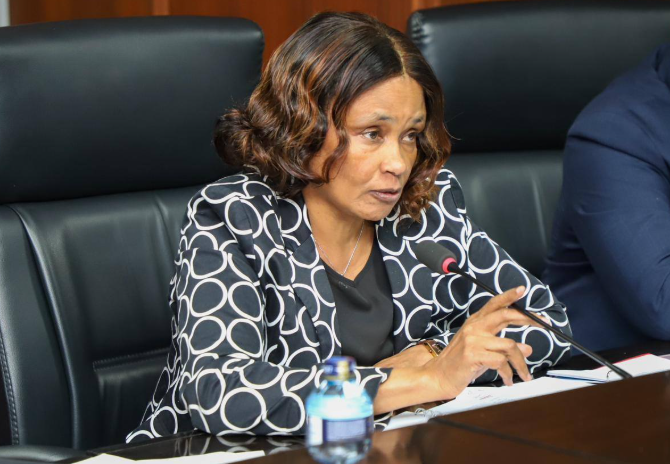By Roy Hezron
The Ministry of Education will supply free set books to form three and four secondary school students starting from July this year.
The proposal is contained in guidelines released by the government on the implementation of Free Day Secondary Education which is expected to be effective from July when new 2021/2022 academic year starts.
School Principals have been advised not to procure the set books for the two classes in all public secondary schools.
The Principal Secretary in the Ministry’s State Department of Basic and Early Learning Dr. Julius Jwan also advised the Principals to ensure accuracy on the school’s enrollment data.
He said the data posted in National Education Management Information System (NEMIS) is what the government will use to procure the books.
“The Ministry of Education will supply English Literature and Fasihi set books to Form three and four students in all public secondary schools in 2021 as guided by the syllabus requirements,” stated Dr. Jwan in the circular, which was directed to all County Directors of Education.
According to Dr. Jwan, funds to actualize the procurement and delivery of the set books shall be retained from the government’s subsidy to schools.
Over 1.4 million students who are currently in form two and three are expected to benefit under the government’s textbook distribution policy as from July this year when they will transit to Form four and three respectively.
The policy introduced in 2018 gives the Ministry of Education through the Kenya Institute of Curriculum Development (KICD) the task of purchasing and distributing the textbooks.
Students are required to have three set books for Fasihi ya Kiswahili and three for English literature. The books are often revised every five years.
Currently, the set books which are in use and are set to be revised include; Blossoms of the Savannah and A Doll’s House (both Compulsory), The Pearl, Memories we Lost and Other Stories, and Inheritance (all optional).
Fasihi ya Kiswahili has Chozi la Heri, Kigogo (Storymoja), and Tumbo Lisiloshiba na Hadithi Nyingine.
Those books were rolled out in 2018 when Blossoms of the Savannah had replaced The River and the Source while A Doll’s House by Henrik Ibsen took the place of Caucasian Chalk Circle’s place.
In the Fasihi books syllabus, Kidagaa Kimemwozea was replaced by Chozi La Heri by Assumpta K. Matei.
It has emerged that KICD has already come up with a list of new Literature and Fasihi set books for secondary schools.
In June, KICD called on respective publishers whose entries won the tenders for the set books and issued them with letters, although the institute has not yet issued an official circular to that effect.
Sources revealed that Fathers of Nations, a novel by Paul B. Vitta (Oxford University Press), has been chosen as the English Literature compulsory text; to replace Blossoms of the Savannah by Henry ole Kulet (Longhorn Publishers).
The optional texts are Parliament of Owls (East African Educational Publishers), replacing The Pearl, a novel by John Steinbeck.
A Silence Song and other Stories (Spotlight Publishers), an anthology of short stories, will replace Memories we Lost, edited by Chris Wanjala.
In Kiswahili, Cheche za Moto by John Habwe (Jomo Kenyatta Foundation) will be studied as the compulsory novel, replacing Chozi La Heri by Assumpta K Matei (One Planet Publishers).
Mapambazuko ya Machweo (Mountain Top Publishers) will be the new anthology of short stories, replacing Tumbo Lisiloshiba (Longhorn Publishers).
The books will be in use for the next five years guaranteeing the winning publishing houses a steady source of income after the government started buying set books for all learners in public secondary schools.
The total population of class sizes average about 750,000 in the country following massive enrolment since the government started the 100 per cent transition policy.
In early March this year, KICD masked publishers to submit print literary texts in English and Kiswahili for evaluation.
The national curriculum developer called submissions for a novel, a play and an anthology of short stories for literature in English, whereas for Fasihi ya Kiswahili (Kiswahili literature), Tamthilia (play), Riwaya (novel) and Hadithi Fupi (short stories) were the areas of submission.
Publishers were expected to make their submissions by noon on March 18, 2021 with a submission payment and evaluation fee of Sh140, 000.
Those who will be successful and expected to effect corrections were required to pay Sh100, 000 for ‘corrections inputting’ according to guidelines released by KICD.
They had anticipated that the evaluation would have been completed by April 6, 2021 after which the Curriculum Technical Committee vetted evaluation report up to April 13, 2021.
Thereafter, the KICD council was to give formal approval of the committee’s recommendations and announce the results.
The ministry has also been buying and supplying textbooks directly to schools since 2018.
The strategy has been praised for achieving the once-elusive one to one student-to-book ratio, although it has also cause the closure of some bookshops.






